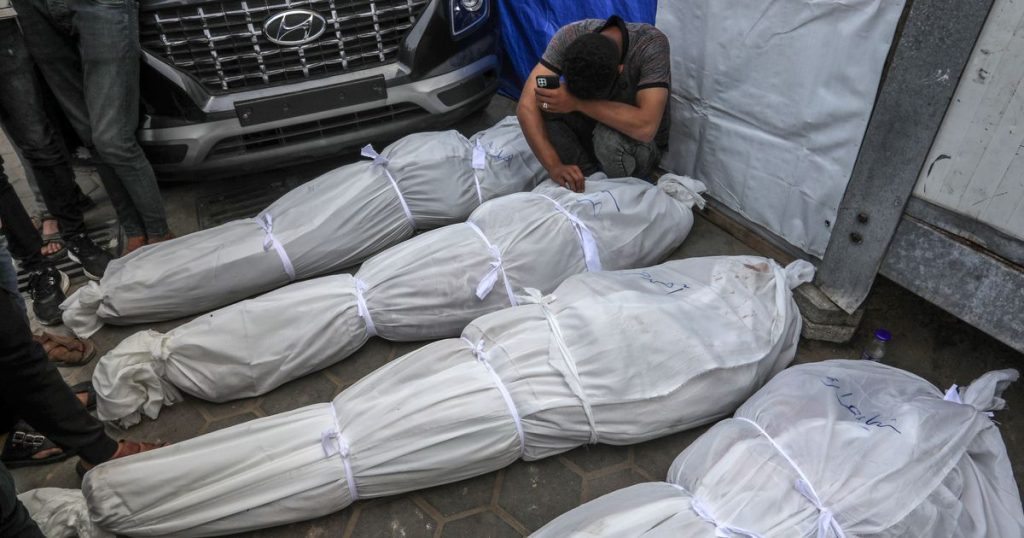In Deir al-Balah, Gaza Strip, an Israeli airstrike killed 27 people, including women and children, and fighting with Hamas continued in the north on Sunday, marking the eighth month of the ongoing war. Prime Minister Benjamin Netanyahu faced criticism from other members of his War Cabinet, including his main political rival Benny Gantz, who threatened to leave the government if a plan was not created by June 8 that included international administration for postwar Gaza. U.S. National Security Adviser Jake Sullivan was to meet with Israeli leaders to discuss a plan for Saudi Arabia to recognize Israel and help the Palestinian Authority govern Gaza in exchange for eventual statehood.
Netanyahu opposes Palestinian statehood and has rejected proposals for an international administration in Gaza, favoring Israeli control and cooperation with local Palestinians unaffiliated with Hamas or the Palestinian Authority. Gantz expressed support for normalizing ties with Saudi Arabia and other Arab countries but emphasized that no outside power should impose a Palestinian state on Israel. Gantz’s withdrawal from the government would not bring it down, but Netanyahu would be more reliant on far-right allies who support the military occupation of Gaza, among other policies.
Despite discussions about the future governance of Gaza, fighting continued with Hamas regrouping in parts of northern Gaza that were heavily bombed. Several airstrikes killed civilians, including women and children, in Nuseirat and nearby areas. Reports of more airstrikes and heavy fighting in northern Gaza highlighted the ongoing humanitarian crisis in the region. Civil defense rescuers recovered many bodies, including women and children, from the rubble of destroyed homes, indicating the devastating impact of the war on Gaza’s civilian population.
Israel launched its offensive after a deadly attack by Hamas militants, leading to a retaliatory conflict that has taken the lives of thousands of Palestinians. The war has displaced around 80% of Gaza’s 2.3 million population, with civilians enduring hardship and limited access to necessities. The ongoing conflict has raised tensions within Israel, with protesters calling for a cease-fire deal to secure the release of hostages held by Hamas and address security concerns that led to the conflict.
Netanyahu faces criticism, both domestically and internationally, for the handling of the war and the humanitarian crisis in Gaza. Pressure from the United States, Israel’s closest ally, has led to a complicated diplomatic situation, with the U.S. expressing frustration over Israel’s conduct of the war and the humanitarian impact on civilians. The Biden administration has withheld military aid in response to concerns about a full-scale invasion of Rafah but later approved the sale of arms to Israel after a limited operation in the area.
The ongoing conflict in Gaza has intensified divisions within the Israeli government, with Netanyahu facing challenges from his political rival Gantz and pressure from the international community. As the war continues to take a toll on civilians in Gaza, the need for a sustainable solution and postwar governance plan remains critical. The humanitarian crisis and security concerns in the region highlight the complexity of the situation and the urgent need for a resolution that addresses the root causes of the conflict.







